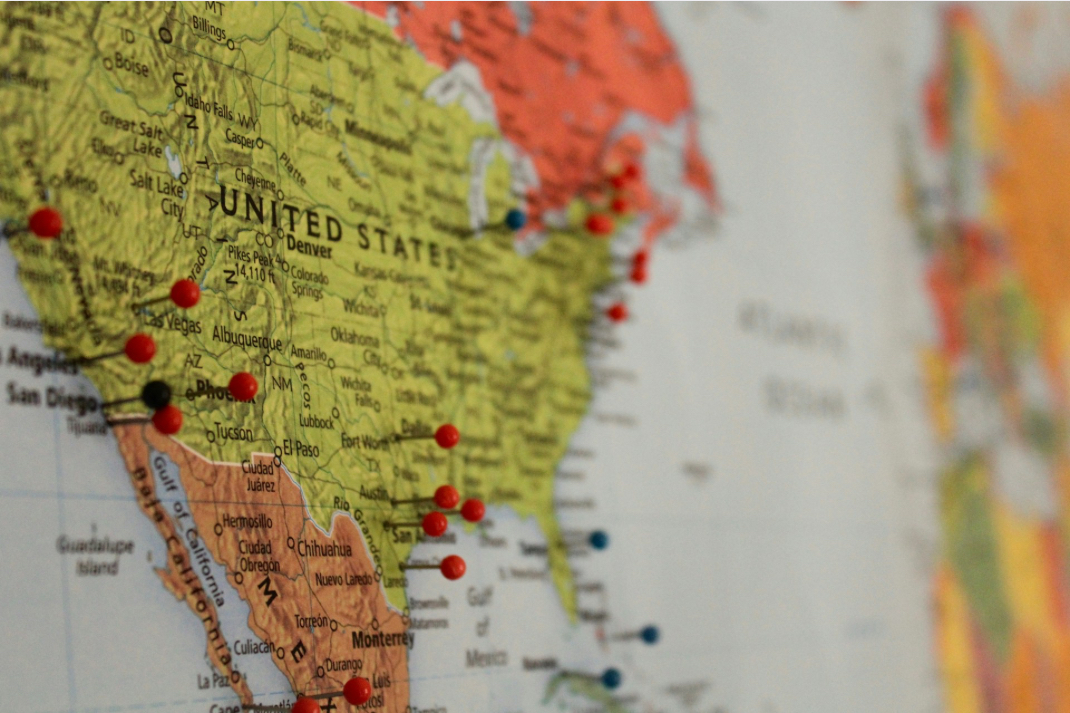On Thursday, January 23, newly inaugurated President Donald Trump’s mass deportation plans began, with Trump aiming to deport all undocumented immigrants residing in the US. Trump’s controversial orders saw passionate support from some and condemnation from others.
Regardless of whether you support the deportation plan or not, it’s important to know how your communities may be impacted, and what rights undocumented immigrants have in the U.S.
Below is an explanation of Trump’s plan, what it means for people and institutions, and what you and others should remember in the event of an ICE raid.
Trump’s plan
What are Trump’s plans for mass deportations? Why do some people agree with them?
President Trump plans to initiate one of the “largest mass deportations in U.S. history,” supported by 93% of Republicans, 67% of independent voters, and 43% of Democrats.
There are estimated to be around 11 million undocumented immigrants in the United States right now, making Trump’s executive orders against immigration a daunting task.
NPR covered the responses of many Trump supporters to his immigration policies. “It’s something that needs to be done in this country,” said Sean Lanham, a demonstrator who came to support Trump. “We can’t take in everybody from the world.”
Supporters called for an ‘organization’ of the immigration system, and cited an ‘immigrant crime wave.’
There is no evidence that said crime wave exists, but the Trump administration has played up the narrative. “[T]hose are bad people… They are criminals,” demonstrator Beatrice Richards said of undocumented immigrants.
Why do others oppose the immigration raids?
Despite much support for mass deportations, many are concerned about the implications for individuals. As reported by Newsweek, Beatriz Lopez, Deputy Director of The Immigration Hub, explains that “[g]iven a choice, voters overwhelmingly support a pathway to citizenship over mass deportations… No one in America wants to see families who have been here for many years separated.”
Another popular concern is the sustainability of this plan and potential economic harm.
Tony Gonzales, a Republican congressional representative from Texas, said that it’s not possible “to round up 10 million people and deport them. It’s simple—[we] do not have the infrastructure to do that.” Gonzales said that he supported any president, including Trump, enforcing laws, but doubted the efficacy of the plan.
Hector Quiroga, an immigration attorney, told Newsweek that “these mandates would create a huge labor shortage in the U.S. and it would make us less competitive in the global marketplace.”
What do deportation numbers look like under Trump?
Media reports and official data state that the number of arrests due to allegations of illegal immigration has increased. ICE posted that they arrested 8,276 people between January 22 and January 31, and issued 6,577 “detainers lodged” for people arrested by law enforcement who ICE found reason to deport.
This increased Biden’s average of 310 arrests per day during the 2024 fiscal year to 828 arrests per day.
That said, this would not achieve Trump’s goal of deporting all undocumented immigrants. ICE does not publicize regular data, and it doesn’t seem that Trump is shifting more resources to arrest those accused of crimes; in fiscal year 2024, 51% of people arrested by ICE had been convicted, and on January 26, 52% were considered “criminal arrests.”
Forbes mentions that the number of deportations under Joe Biden was higher than under Trump’s first administration.
Americans should continue to monitor how Trump implements new immigration policies, and how these compare to his first administration.
What else has changed?
Illegal crossings at our southern border have continued on a downward trend. Trump directed the military to maintain control of the border.
Trump indefinitely suspended refugee resettlement, and stripped legal protections from immigrants who were protected from deportation, including those established on humanitarian grounds. Moreover, he mandated the federal detention of unauthorized immigrants charged with theft and violent crime in the US.
The government shut down CBP One, an app that helped migrants legally enter into the US. And the Department of Justice has claimed it will cut off funding to “sanctuary” cities, whose cooperation with immigration enforcement is limited.
In the midst of this, immigrant communities are grappling with increased fear and confusion. Many adults are staying home from work, with children skipping school.
Trump’s policy changes on immigration are laid out more thoroughly by the Immigration Policy Tracking Project.
Implications for undocumented immigrants
What happens to deported immigrants?
NBC News explains that an unauthorized immigration raid could start with an arrest, based on a run-in with the law, a raid, or a warrant. People will then be transferred to ICE detention facilities, which Trump plans to build more of.
Immigrants who have arrived within two years could be subject to expedited removal, with no appearance before an immigration judge. However, for those who have been in the US longer, the wait can last for years.
If given a “final order of removal,” people are sent to ICE staging facilities and then sent away on an airplane.
Guards and medical staff accompany the flight; public documents state that food is provided. People can bring a bag weighing up to 40 pounds. Often, passengers are restrained, though not children or their parents.
Once they land, passengers interview with local officials and may receive a medical evaluation. Then, if needed, they’re sent back to their hometowns.
Where can ICE raids happen?
On January 21st, the Trump administration announced it would cancel a policy that prevented ICE from making arrests in certain sensitive locations. This means that ICE can conduct arrests in schools, hospitals, and religious institutions.
How this may impact our school and other communities you’re in, and what everybody’s rights are, are covered below.
Undocumented people’s rights
Clearwater Law Group experts explained that individuals in the US, including undocumented people are entitled to certain constitutional rights, including protection from searches and seizures without a warrant or probable cause (as covered by the Fourth Amendment).
An exception to this is the “border search exception”; the government can conduct non-warranted searches within 100 miles of the border. This applies to people in San Diego, and nearly 2 out of 3 Americans.
Other rights undocumented people are entitled to include the right to due process under the law (the Fifth Amendment), the right to legal counsel (the Sixth Amendment), equal protection under the law (the Fourteenth Amendment), and the right to education (the Fourteenth Amendment).
These experts said that “[i]llegal immigrants who have been in the country for less than two years and apprehended within 100 miles of the US border may be subject to expedited removal proceedings, which do not include a hearing before an immigration judge. However, if they are asylum seekers, they must be granted a chance to present their case before an immigration judge.”
ACLU provides extensive resources explaining what people should do in a confrontation with law enforcement over immigration.
How this affects your communities
In San Diego
Immigration enforcement actions have occurred in San Diego County. U.S. Marines have arrived near Imperial Beach, situated miles from our border with Mexico. Moreover, local troops are working with the Department of Homeland Security to implement immigration security measures in San Diego.
CSUSM lists several resources for undocumented individuals and immigrant communities in San Diego County, including ACLU of San Diego, Jewish Family Services, UURISE, and other legal aid and immigrant rights societies.
Catholic faith-based perspectives
USCCB reaffirmed Catholic organizations’ commitment to ensure that dignity and justice are upheld in the execution of immigration law, and condemned Trump’s removal of bans on immigration in ‘protected areas’ like churches.
“Turning places of care, healing, and solace into places of fear and uncertainty for those in need, while endangering the trust between pastors, providers, educators and the people they serve, will not make our communities safer,” USCCB leaders wrote.
Catholic Charities SD has a detailed website with resources for immigrant families in need of assistance, including portable red cards detailing the rights of immigrants confronted by law enforcement. You can print these cards for your own use or to give to others.
As a school community
Dr. Calkins, Cathedral Catholic’s president and interim principal, does not expect ICE involvement on campus.
That said, the CCHS administration has been working “with the help of the Diocese of San Diego and Catholic Charities, who have attorneys that are experts in immigration law… [T]hey were able to educate us on what our rights are, and what the law is, and how…you uphold both of those realities.
“Unless an ICE agent or some kind of federal authority [has] some kind of subpoena, or some kind of search warrant, they don’t have a right to come on campus and demand information,” Dr. Calkins explains.
“[T]echnically… students don’t have to share information about their citizenship with anybody,” Calkin clarifies. “It’s not required to be a student at a school in California, it’s not required to be a student at Cathedral Catholic.
“But if a federal officer, ICE agent, or somebody were to come on campus, and if they did have a subpoena or some kind of official document, asking for either information or to speak with an individual, we would comply with it in a respectful way,” Calkin adds.
In this unlikely case, the school administration would work with ICE to make the least possible impact on the school day; Dr. Calkins doesn’t expect a chaotic campus raid.
Dr. Calkins encourages students to keep conversations about immigration respectful and be careful of their language. “People are still people, and…we can love each other regardless of… citizenship status,” Dr. Calkins says.
“Always be respectful and mindful [that] what comes out of your mouth is in line with values that we try to hold dear… respecting people and culture and law.”






















































